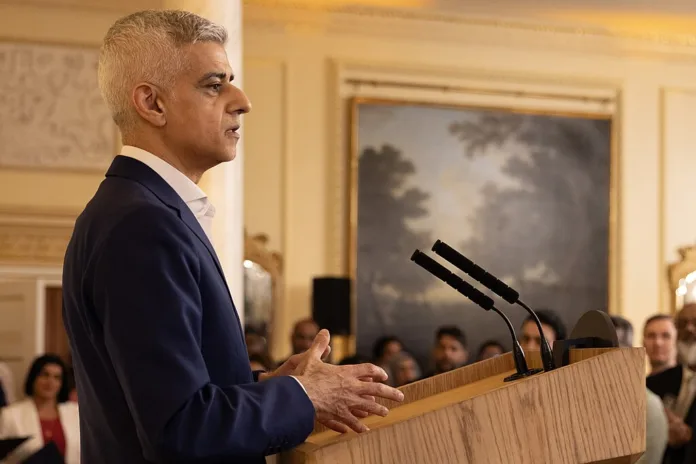Anger erupts after City Hall and government slash London’s affordable housing quota to 20%
London’s already dire housing crisis has taken a dramatic turn after the government and City Hall agreed to slash the capital’s affordable housing quota for new developments from 35% to just 20%.
The joint move by Housing Secretary Steve Reed and Mayor of London Sadiq Khan is being sold as a “temporary emergency measure” to speed up planning and spur construction. But critics have denounced the decision as a humiliating climbdown and a betrayal of London’s struggling renters and homeless families.
Under the new deal, developers will now be fast-tracked through the planning process if they agree to make one in five of their new homes “affordable”. City Hall says the change will unblock stalled projects, boost investor confidence, and kickstart the building of desperately needed housing across the capital.
As part of the announcement, Khan has been handed wider planning powers, allowing City Hall to step in on projects with more than 50 homes that borough councils have rejected — a significant reduction from the previous 150-home threshold. A new £322 million City Hall Developer Investment Fund will also be launched to encourage developers to press ahead with construction.
Defending the shift, the mayor said housebuilding in London had “dried up” and warned of a nationwide slowdown. “I’m not willing to stand by when that happens,” he said. “Working with the government, we’ve announced a short-term package to kickstart housebuilding — and that means more affordable homes that Londoners desperately need.”
City Hall said the crisis was so severe that “emergency action” was the only option to get building moving again. The government echoed that sentiment, blaming a “perfect storm” of high interest rates, rising construction costs, regulatory red tape, and economic fallout from the pandemic for the sharp drop in new homes.
But critics across the political spectrum blasted the move as a catastrophic failure of leadership.
Andrew Boff, Conservative chair of the London Assembly’s planning and regeneration committee, said the mayor’s U-turn was “an embarrassing climbdown”. “We’ve been telling him since 2016 that his high targets were blocking development,” he said. “He’s finally admitted it, but it’s far too late. You can’t make homes affordable if you’re not building them in the first place.”
The backlash from housing campaigners was even fiercer. Suzanne Muna from the Social Housing Action Campaign (SHAC) branded the policy a “betrayal” of Labour’s promises to tackle homelessness. “The idea that the solution to the housing crisis is to reduce the number of sub-market homes is nonsense,” she said. “It’s not going to reduce homelessness — it will make it worse.”
Muna said most Londoners were already paying around 40% of their salaries on housing, warning that cutting affordable housing quotas would only push more families into hardship.
Green Party London Assembly Member Zoë Garbett accused the mayor of protecting “developers’ profits” instead of helping those in need. “Lowering these targets won’t solve our housing emergency,” she said. “It’ll just make developers richer and reduce the number of desperately needed social homes.”
The scale of London’s housing shortfall is staggering. Despite City Hall’s target of 66,000 new homes a year, only 30,000 were built last year, with just under 4,000 classified as affordable — a collapse from 25,000 the previous year. The government believes the capital needs 88,000 homes annually to meet demand, but progress has ground to a halt.
Councillor Grace Williams, London Councils’ housing and regeneration lead, said boroughs would study the plans carefully. “There are already nearly 300,000 homes approved but not yet built,” she said. “We need to make sure developers deliver on their promises if we’re going to tackle the crisis facing London.”
For a city where affordable homes are vanishing faster than they’re approved, the latest policy shift marks a grim new chapter. What was once a promise of half-affordable housing has now been reduced to one in five — a ratio that, for many Londoners, feels like the final insult in a city where homeownership is already a fading dream.
